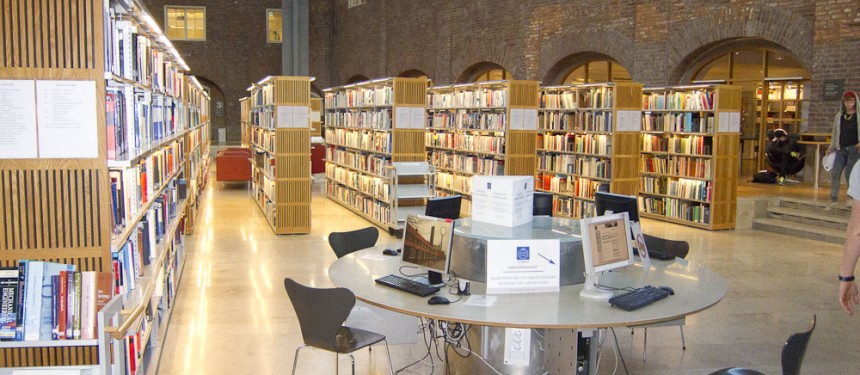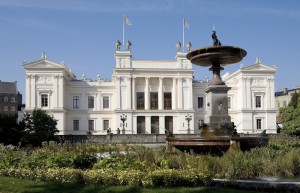With fees on par with much larger study destinations such as the UK and Australia, Sweden will have to work hard to communicate what makes its special. Luckily its attributes are many. Most international programmes are taught in English – hard to find in the majority of European destinations – and its rules on studying during and after a degree are flexible compared with many countries.
News and business analysis for Professionals in International Education
Have some pie!
How is Sweden recruiting internationally?
 Sweden offers high quality facilities such as KTH Royal Institute, Stockholm
Sweden offers high quality facilities such as KTH Royal Institute, Stockholm The country is also a well known innovation hub. Universities like Lund, Uppsala and KTH produce world leading research in areas like biotechnology and engineering, while a symbiotic relationship exists between academia and the private sector which has nurtured homegrown brands such as Ericsson, Scania and Volvo in the past.
Innovation also influences teaching methods, with self study and creative thinking strongly encouraged at university. Such out-of-box thinking applies to the student experience as well, or what some refer to as the “positive difference” in Swedish culture, where a strong record of human rights and environmental sustainability, plus low crime rates have helped the country top international quality of life rankings.
The challenge now is how to market such qualities – something Sweden’s universities have never seriously had to do given the appeal of free tuition. Universities have already launched major campaigns across social media and traditional channels, but these will take time to bear fruit, not to mention cost money. While Lund University avoided the losses seen at other universities through pre-emptive marketing, Richard Stenelo, Head of International Marketing, says: “We have a long way to go before we are anywhere near American, Australian or British universities in terms of marketing.”
The challenge now is how to market such qualities
Others say expanding scholarship schemes will be key. A government scholarship scheme predicted to mitigate this year’s fall in recruitment in the end misfired, with only 105 scholarships awarded following 7,026 applications. While the government promises to rectify this next year, some universities feel that they will have to seek private sector support. A new approach could stretch to public-private partnerships or the increased use of recruitment agents, until now quite rare in Sweden.
Whether Sweden can pull its figures back remains to be seen. Viewed pessimistically, things could go the way of Denmark, which four years after introducing fees is still around 40% short of previous recruitment levels. However, those in the Swedish sector remain hopeful. Niklas Tranaeus, Manager of the Study in Sweden campaign at Swedish Institute, says it is difficult to make predictions, but that “some of the loss will be compensated by recruiting in the EU, possibly also from the UK… Some institutions are likely to return to their previous levels of international students within a few years.”
Still looking? Find by category:




Did the reporter do his research? There is no Upsalla – try Uppsala! Also the Estonians claim the creation of Skype.
Well spotted. Skype was founded by Swede Niklas Zennström, who was educated at Uppsala (spelling noted!), and Dane Janus Friis. Its peer-to-peer telephone system was developed and patented by Estonian engineers. Any thoughts on the rest of the piece?
Pingback: Living costs in Sweden deter foreign students | ukpal.net